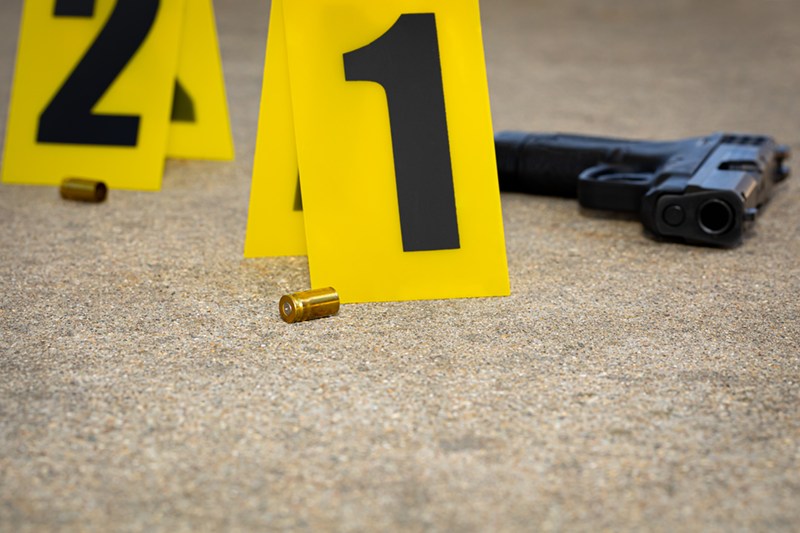It’s easy to think of event permits as little more than an item on a checklist. However, with the rise in active shooters in recent years, organizations should consider permits as a necessary starting point when considering event safety.
There are too many recent instances of unpermitted events ending in tragedy due to active shooters. The Dallas April 2022 outdoor concert shooting resulted in one dead and sixteen injured. Shootings at a spring break party in March 2022 and an illegal pop-up market in San Jose similarly took the lives of two individuals, while many more were injured. In all these cases, the events were un-permitted and were subsequently missing key safety measures and protocols that could have saved lives.
Even one victim is too many. Event venues are responsible for protecting attendees in any way they can. Active shooter prevention is an increasingly necessary aspect of event planning, and obtaining the correct permits is a great place to start.
The role of event permits in risk mitigation
Think of the permitting process as a roadmap for safety protocols. Requirements vary from state to state; but by going through the process, you’ll have a strong understanding of the necessary safety protocols needed based on the number of attendees you’ll have.
The permitting process will generally involve the creation of:
- Crowd management plans
- Medical and safety plans
- Site security plans
- Emergency plans
- Exit plans
Together, these requirements will help you ensure the safety of your attendees and bolster your active shooter prevention. However, you should also consider external vendors and safety personnel. All outside services should be held to high standards when running an event, from security to food stalls. These services might include providing entertainment or products that require additional safety protocols, such as pyrotechnics, open flames, or temporary structures. A permit helps event planners navigate these variables effectively.
During the permitting process, you may also receive a site inspection from the police. Their presence, combined with the above safety precautions, may mean the difference between life and death for your attendees in an active shooter incident.
Also read: How to Create an Event Crowd Management Plan (And Why It’s So Important)
Prevention is the first step to mitigating risk
Two risk factors are especially relevant to effective active shooter prevention at events: alcohol consumption and accessibility. Both risk factors will likely be reviewed when applying for an event permit, providing a great starting point for event planners. However, you should be prepared to independently evaluate preparedness and procedures.
Excessive alcohol consumption could lead to violence on its own or cause confusion and chaos during a shooting. If your event is serving alcohol, make sure you also offer food. Provide non-alcoholic beverage options, limit pours, and consider stopping service before the event concludes. You can also require tokens or tickets if appropriate.
To limit the effects of an active shooter, events must also provide safe, quick, and easily accessible exits. Risks to evaluate include crossflow/traffic, electrical installation safety, use of a temporary stage, trip hazards, and the number of exit points relative to the number of attendees. A swift exit for attendees can save lives.
By limiting alcohol and providing adequate accessibility, your attendees will be able to better understand their exit routes and make decisions that could keep them safe during emergent situations.
Also read: Best Practices for Incident Prevention in Amusement and Entertainment
Training for active shooter prevention
One of the best things your team can do is provide additional staff training. Active shooter prevention requires everyone to know what to do during an emergency. There have been multiple incidents in which effective training was credited for saving potentially hundreds of lives.
We’ve covered the importance of developing an effective employee training program, but you may want to provide further training that helps prepare for any emergency. Training programs can be broken down into:
- Mandatory Training: This includes general training for all staff, done in accordance with each organization’s unique policies and procedures. The training should be completed during the onboarding process before full access is granted to your team’s computer systems.
- Reinforcement Training: Once general training is complete, staff should undergo refreshes and additional workplace training at regular intervals. They may also require training unique to a specific team or function that is not necessary for every staff member.
- Enhanced Training: Through assessments, organizations should recognize gaps in their teams’ skills, such as specific active shooter training, and provide opportunities for more specialized topics and training exercises.
Additional training is essential as it helps minimize overall event risk. Take every opportunity for your organization to have more control and reduce confusion. It can only help.
The importance of insurance coverage
Active shooter prevention can be a daunting issue for event planners. Thankfully, event permits provide a roadmap to increasing your preparedness and taking steps to mitigate risks. Unfortunately, not all disasters can be prevented. Onsite injuries and incidents can still leave venues and event planners at risk of litigation. One example is New York’s Dram Shop Act, which allows those who were injured because of someone else’s intoxication to sue the party that sold alcohol to the instigator. Without adequate permits and insurance, organizations leave themselves open to additional damages.
It is up to organizations to ensure they have insurance coverage in place to protect against the unknown. McGowan Allied Specialty Insurance brings 35 years of experience providing risk management and insurance policies to the amusement and entertainment industry. The experts at McGowan can explain our Active Shooter Insurance coverage options and advise you on policies and procedures that will protect your organization in an emergency.
